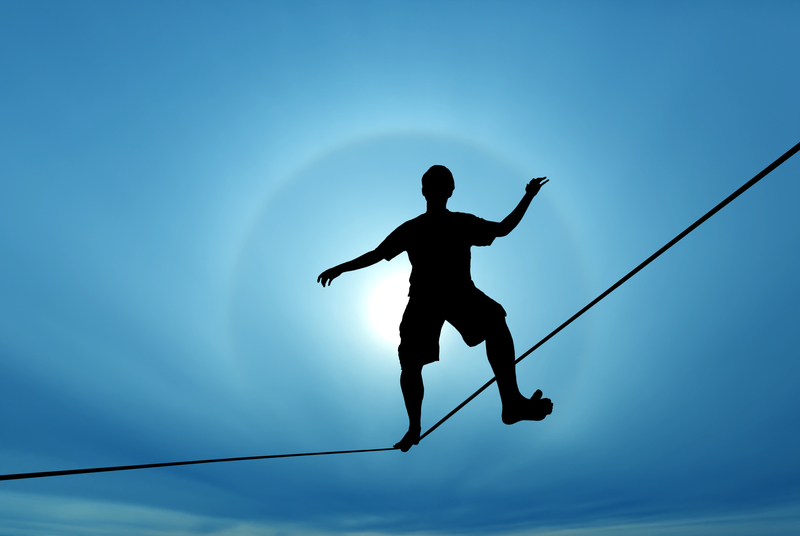By Dr. Yakubu Sani Wudil
Recently, we carried out an intriguing but tempting social experiment in which the participants were asked to choose between two options: toss a coin to win one billion dollars if a head shows up or pick a 10-million-dollar cheque without any toss.
The comical aspect of it is how an overwhelming majority opted to take home the comparatively meager but incontestable share of 10-million-dollars—only 31 per cent of the respondents took the courage to test the depth of the river.
The motivation behind the exercise was not to gauge the participants’ pecuniary obsession but to subtly assess their risk appetite. It is a choice between instant and delayed gratifications. The latter has often been adjudged as a predictor of future success, as depicted in the famous “Stanford Marshmallow” experiment which was carried out in the 1960s by psychology professor, Walter Mischel of Stanford University.
In the studies, children were asked to select between two options: one small instant reward (a sweet or a marshmallow, hence the name “marshmallow experiment”) or two small rewards after waiting for a short time (around 15 minutes). The tester left the room to allow the children to make their uninfluenced choice.
The trajectory of the children was followed for two decades. The research revealed that those children who waited longer for the desirable reward tended to fare better in terms of their academics, body mass index, and even psychological health.
The inability to delay gratification in adults is associated with “impulse control disorders”, a pathological term used to describe one’s failure to resist the urge, impulse, or temptation that may harm one or others. Such temptations are a consequence of the dysfunction of Striatum, a critical component of the forebrain in charge of the reward system. Thus, drug addicts can be considered typical prisoners of instant gratifications.
Another study conducted by Keith Simonton, a psychology professor at the University of California Davis shows that renowned scientific figures such as Albert Einstein, Charles Darwin, Isaac Newton, etc. were prolific risk-takers, chasing ideas that seem counter to prevailing thoughts.
The research conducted on the lives of more than 2,000 scientists focused on some characteristics like family background, intelligence, personality, education, and productivity and established their correlations with success.
The propensity of individuals to take risks in unforeseen circumstances without fear of failure is, without doubt, the propeller that drives them towards fulfilling their ambitions. Willingness to take risks forms a substantial part of the stories of many accomplished entrepreneurs globally. Let us scan through a few of them and extract some takeaways.
The success story of the celebrated 650,000 barrels per day Dangote integrated oil refinery and petrochemical complex is a testimony to the worth of taking calculated risks. The challenges encountered at different stages of the project, which nearly led to its collapse, after investing the over $12bn loan was, according to Dangote, “the most terrifying experience’’ of his life.
Dangote’s resolve to accomplish his desire of establishing Africa’s biggest refinery and world’s largest single-train facility could not have been realized if not for his resilience and steadfastness to the original cause. Essentially, his ability to manage risks and see opportunities and tap them in a timely fashion from the Nigerian market remains his idiosyncratic strength.
The journey of the Facebook—now called Metaverse—co-founder, Mark Zuckerberg, has yet another compulsive representation of risk-taking adventure. Zuckerberg, who was an epitome of ingenuity from the onset, had developed a few application packages before Facebook.
The early version of the music software Pandora, which was then called Synapse, was the first work of Zuckerberg to bring him to the limelight. Many giant techs including Microsoft and AOL expressed interest in hiring the prodigious teenager and purchasing the software, an offer he declined.
In his sophomore year, Zuckerberg decided to quit the prestigious Harvard University to nurture his social application company—Facebook—which started from just a group of friends. Until June 2004, Facebook was run by Mark and his friends from out of a dorm room of the Ivy League institution. By the end of the year 2004, Facebook has reached more than a million users.
The business insider report of April 16, 2017, has it that a string of suitors including Google, Yahoo, Microsoft, AOL, Friendster, The Washington Post, Viacom, NBC, and Myspace were speculated to initiate acquisition overtures to Facebook. Yet, their offers got declined.
Today, the Bloomberg Billionaires index placed Zuckerberg’s net worth at $121.6bn making him the sixth richest man on earth. His social application company—Facebook—remains the most widely used social networking site connecting over 2.8 billion subscribers globally. Facebook has extended its frontiers to acquire Instagram and the WhatsApp companies making it the global tech giant.
The takeaway from Zuckerberg’s struggles is his risk-taking proclivity which lies in his ability to sacrifice immediate luxuries for more rewarding future gains.
Next is the story of the South African-born American business mogul, Elon Musk, who is the co-founder and CEO of Tesla Motors, a company that manufactures electric cars, solar roofs, and batteries. Musk is also the founder and CEO of SpaceX, the first private company to launch spacecraft to the international space station.
After completing his bachelor’s degree in physics at the University of Pennsylvania, Musk was accepted for a Ph.D. degree in energy physics at the prestigious Stanford University. However, this development coincided with the time of the internet boom, and his dream of acquiring a Doctor of Philosophy Degree never saw the light of the day. Musk bravely took the risk and dropped his Ph.D. plan to establish his first company, Zip2 in 1995.
Musk is, according to Bloomberg’s Billionaire Index, the richest man on earth today, with a net worth of $302bn.
Human beings tend to be organically hysterical about their actions for the uncertainty of what may result as their consequences. However, their disposition to exert outward momentum to overcome the innate fear is what decides their triumph. We often make different decisions, depending on risk aversion, addictions, personality, and our immediate environment.
Generally, groundbreaking innovations are often realised by challenging the status quo and going out of the comfort zone. People’s ability to depart from their comfort zone is tied with their risk-taking strength, which our experiment revealed its paucity. It is like the case of one who wants fruit but does not want to risk moving to the branch of the tree. “If you are not willing to risk the unusual, you will have to settle for the ordinary,” said the American Author, Jim Rohn.
If any, the experiment further divulges our perhaps, spiritually-driven attitude of contentment which, in my opinion, should be open to refinement. It is never—and will never be—a misdemeanor to aspire for prestige.
Thus, having established that ability to take risks is the oxygen that drives success in every field of endeavor: from academia to business environment and from politics to industry, it becomes essential to take as many calculated risks in life as possible, if one succeeds, they can lead. If they fail, they can guide.
Dr Wudil is with King Fahd University of Petroleum and Minerals, Dammam, Saudi Arabia. [email protected].

 Join Daily Trust WhatsApp Community For Quick Access To News and Happenings Around You.
Join Daily Trust WhatsApp Community For Quick Access To News and Happenings Around You.



